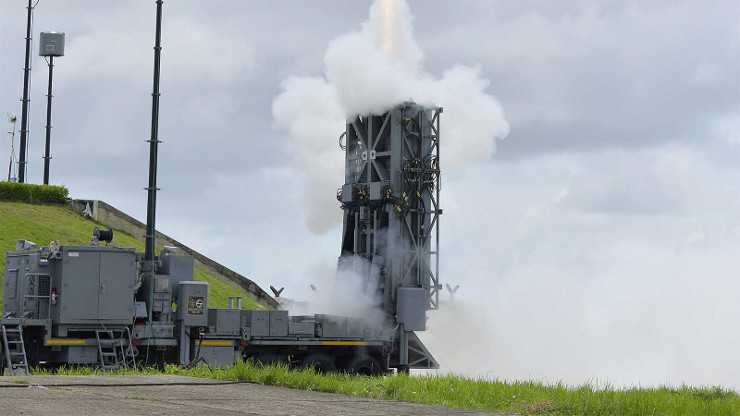On July 12, Israel and Vietnam celebrated the 29th anniversary of the establishment of diplomatic relations and emphasized in official statements that there is great potential for the further development of economic and diplomatic cooperation that could bring significant benefits to both sides.
Vietnam, as you must know, is a member of the Association of Southeast Asia Nations (ASEAN), which brings together 10 countries with a population of at least 650 million people. Israel maintains diplomatic and economic relations with several member states of ASEAN, an association that over the years has become a major economic entity in Southeast Asia.
As the Israeli expert at the Begin-Sadat Center for Strategic Studies on Security Issues in the East Asia Region, Alon Levkowitz, once noted, “diplomatic and economic relations with Vietnam enable Israel to increase trade not only with ASEAN members with whom the Jewish state has established its own diplomatic relations, but also with those with whom such relations do not yet exist. Moreover, Vietnam has become a channel through which Israel can trade with the Muslim world in the region without encountering political and ideological obstacles.” This was one of the reasons why Israel and Vietnam began negotiations on a Free Trade Agreement (FTA).
Strengthening trade, economic and political ties with Vietnam is therefore very important for Israel and provides access to other countries outside Southeast Asia with which Hanoi has established its own diplomatic relations.
These two countries, located at opposite ends of Asia, are similar in many ways: they are small, stretch in narrow strips along the sea, have survived several difficult wars with stronger opponents, and have won all of those wars. Moreover, both countries emerged from such wars in their current form, which is, of course, an important factor in bringing them closer together. And also in the establishment of close military-technical cooperation, in which Israel ranks second after Russia in terms of volume military goods shiped to Vietnam. In this regard, trade between Israel and Vietnam is not limited to civilian industry; the two countries also cooperate in the defense sector. The growth of cooperation in this field between the countries has been particularly noticable since 2011. To date, the military trade volume between Hanoi and Israel is estimated at $1.5. The Israeli military-industrial complex provides a number of solutions to the security problems facing modern Vietnam. One of the largest transactions dates back to 2015, when Vietnam purchased three Spyder short-range air defense systems from Rafael worth $600 million.
It is no secret that Israel occupies one of the leading positions in the world market for weapons and military technologies. According to the US Congressional Research Service, in recent years this country was the eighth largest arms exporter in terms of export transactions, after the US, China, Russia, France, the UK, Germany and Italy. At the same time, there is a steady trend of increasing exports of Israeli military products to the countries of the Asia-Pacific region (India, Singapore, the Republic of Korea, Vietnam).
Within the framework of the Israeli Ministry of Defense, in order to ensure the effectiveness of the state management of export transactions, the Department of Military-Technical Cooperation with Foreign Countries – SIBAT (abbreviation of the initial letters of the name in Hebrew) was created, whose main task is to create favorable conditions for the export of military products (MP) and to assist the Israeli military-industrial complex in the sale of MP. In Israel, any businesman or entity that has the permission of SIBAT has the right to buy and sell weapons, whie setting individual prices for the exported goods and services. At the same time, Israel, unlike other major arms manufacturers, is subject to restrictions on the export of arms and military equipment. In particular, its military-technical and military-political dependence on the United States results in restrictions on access to the world market for various types of military equipment, especially air defense complexes.
In this area, problems have recently arisen in relations between Vietnam and Israel. According to the Israeli newspaper Haaretz, Hanoi is unhappy with the Spyder short-range air defense systems it purchased from Rafael, although Rafael recently planned to offer the Vietnamese Air Force the purchase of three more similar complexes.
Instead, Hanoi intends to purchase the Barak-8 air defense system from Israel’s IAI, Rafael’s main competitor in the Israeli domestic market, for $500 million. According to the manufacturer’s explanation, the Barak-8 air defense system (which means “lightning” in Hebrew), also known as LR-SAM or MR-SAM, can be deployed both on land and on offshore platforms. It is designed to protect against any type of aerial threat, including aircraft, helicopters, UAVs, anti-ship, ballistic, and cruise missiles. This missile defense system was jointly developed by India’s Defense Research and Development Organization (DRDO) and Israel Aerospace Industries, and its components are manufactured by Israel Research and Development Authority (DDR&D), ELTA Systems, Rafael Advanced Defense Systems, and India’s Bharat Dynamics Limited (BDL).
Rafael and IAI develop missile technologies and compete with each other. In general, competition among Israeli weapons manufacturers has intensified in recent years, although the Israeli Ministry of Defense, which coordinates foreign sales by Israeli defense companies, tries to minimize it. An example of such internal competition is the recent scandals between Elbit Systems, IAI, and Rafael, which deal with unmanned technologies. For example, in the recent past, one of the Israeli companies organized a smear campaign against a competitor in the client country, as a result of which none of them managed to obtain a contract.
This reorientation by Vietnam from Spyder to Barak-8 has already raised competitive fears in the headquaters of Israel’s Rafael Advanced Defense Systems, from which Hanoi acquired the Spyders in 2015. Both companies have begun settling scores, which some observers say ultimately threatens the loss of the future contract by both Israeli companies.
Vladimir Odintsov, political commentator, exclusively for the online magazine “New Eastern Outlook“.

